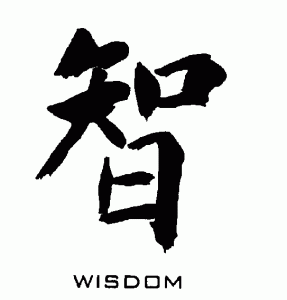 Knowledge + Experience = Wisdom.
Knowledge + Experience = Wisdom.
Great writers develop a deft touch and an extensive toolkit of skills to draw upon. They marry their knowledge with their experience to produce something more. The good news is that we don’t each have to discover every skill ourselves in a vacuum.
I enjoy reading. I always have. It is one of the reasons I turned to writing as a youth. I find reading to be a great escape, which is probably why one of my favorite genres is fantasy. I love getting lost in a good story. However, as a writer there’s so much more a good story can provide than just the escape. Great authors teach those willing to learn from their experience, those able to see. I struggle sometimes to do that. I tend to get sucked in too deep to analyze as I read. Usually I have to go back and study after I reach the end.
In a recent post, Leigh talked about how she learns from great authors. I haven’t yet tried the technique she recommends, but I think when I do it will help cement even better some of the lessons I learn from authors I enjoy.
In my own writing, I’ve developed some strengths, and am working to identify additional areas for improvement. One strength of mine is action scenes. I’ve spent a lot of time working on these, and I’ve studied some great authors to learn ways to improve delivery of a good action scene. Matthew Reilly, author of Scarecrow, is one example. This book is an excellent military thriller that delivers non-stop action from page one to the very end. From him, I learned the importantce of keeping sentences and even paragraphs short in action scenes to ratchet up the tension. That simple change in structure has a huge impact. Another critical element for writing great action scenes is to use multiple senses to really draw the reader into the action and help them feel the danger. Too many authors gloss over action scenes at a high level and miss delivering that visceral experience to the reader.
On the other hand, an area I am working to improve is character depth/complexity/arc. Since I write fantasy, not thrillers, I need more character development and depth than a pure thriller might worry about, so I’ve turned to other authors for insights.
I recently read Patrick Rothfuss’ The Name of the Wind. I thoroughly enjoyed the novel, and learned some lessons from it. The book is very interesting, but not really very action packed. Despite the lack of lots of action, it did not bore me or let my interest wander. That’s because it is a great example of a fascinating, complex world brought to life with excellent descriptions, and a character we really root for. These are things I can learn from and add to the solid structure and explosive action scenes I already know how to write.
Another book I recently finished reading was The Warded Man by Peter V Brett. This is a dark fantasy with a brilliant concept and truly high stakes. Again, the action scenes were not what jumped out at me in this book. Instead, the magic system and precarious situation of the characters sucked me in. The worled was well defined and exotic, and all the main characters were complex and compelling. I plan to study this book again with an eye toward developing stronger, multi-faceted characters.
I’m on the hunt for other books that are great examples of particular skills. What books do you consider landmark novels that have taught you or given you insights to lift your craft to a higher level?

 There are many parts of creating a new novel, and creating realistic characters is probably one of the most challenging ones. Characters need to be believable. They need to have their own personality, habits, and traits that set them apart from others. If done correctly, the reader will be able to relate. They’ll understand and feel concerned. It’ll pull them deeper into the novel and they’ll keep reading to figure out what will happen. If done poorly, it will throw them out of the novel. They won’t be able to believe and before long, they’ll look elsewhere and leave your novel behind.
There are many parts of creating a new novel, and creating realistic characters is probably one of the most challenging ones. Characters need to be believable. They need to have their own personality, habits, and traits that set them apart from others. If done correctly, the reader will be able to relate. They’ll understand and feel concerned. It’ll pull them deeper into the novel and they’ll keep reading to figure out what will happen. If done poorly, it will throw them out of the novel. They won’t be able to believe and before long, they’ll look elsewhere and leave your novel behind.






